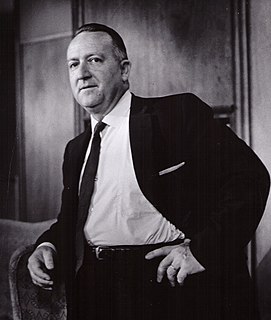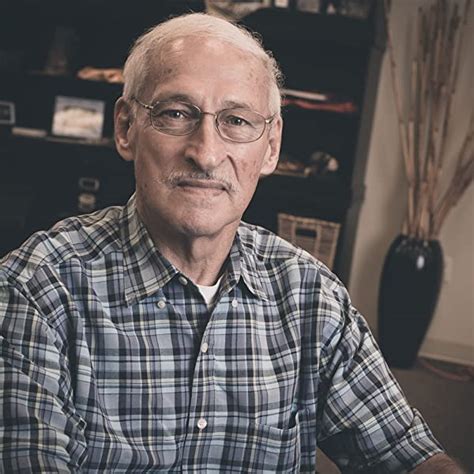A Quote by Tadao Ando
In the West there has always been the attempt to try make the religious building, whether it's a Medieval or Renaissance church, an eternal object for the celebration of God. The material chosen, such as stone, brick, or concrete, is meant to eternally preserve what is inside.
Related Quotes
The church has contributed nothing to civilization. It has progressed somewhat, and it has become a little more decent, in reflection of the movements of civilization that have taken place outside of the church and usually in the face of the strong opposition of the church. But the church has always resisted the process of civilization. It has struggled to the last ditch, by fair means and foul, to preserve as long as it could the vestiges of ancient and medieval theology, with all the puerile moralities and harsh customs and medieval styles of belief.
Among the Mormons, things temporal have always been important along with things eternal, for salvation in this world and the next is seen as one and the same continuing process of endless growth. Building Zion, a literal Kingdom of God on earth, has therefore meant an identity of religious and economic values: in the daily affairs of the Kingdom, Latter-day Saint scriptures call for unity, welfare, and economic independence.
And so it is with our own past. It is a labour in vain to attempt to recapture it: all the efforts of our intellect must prove futile. The past is hidden somewhere outside the realm, beyond the reach of intellect, in some material object (in the sensation which that material object will give us) of which we have no inkling. And it depends on chance whether or not we come upon this object before we ourselves must die.
The object is evident in the name of the discipline. Similarly, theology (theologia) is the study of God. The object of theology is not the church's teaching or the experience of pious souls. It is not a subset of ethics, religious studies, cultural anthropology, or psychology. God is the object of this discipline.
Every thing thinks, but according to its complexity. If this is so, then stones also think...and this stone thinks only I stone, I stone, I stone. But perhaps it cannot even say I. It thinks: Stone, stone, stone... God enjoys being All, as this stone enjoys being almost nothing, but since it knows no other way of being, it is pleased with its own way, eternally satisfied with itself.
Who is a god? A god is one who has learned the secret of being happy with the whole universe, with every flower and with every river and with every rock and every star; who has become one with this continuous eternal celebration; who celebrates, who doesn't bother whose celebration this is. And wherever there is a celebration, he participates.
Embedded in the gospel of Jesus Christ there are eternal principles and truths that will last far longer than the principles of building ships and roofs. You and I, as members of the Lord's true Church, have special access and insight into these eternal principles and truths, especially when we listen to the Spirit for individual guidance and hear the prophet's voice as he declares the will of God to the members of the Church. You and I both know how important these eternal principles and truths are in our lives.
My activism is a result of my love. So whether it's trying to preserve the wilderness in Southern Utah or writing about an erotics of place, it is that same impulse - to try to make sense of the world, to try to preserve something that is beautiful, to ask the tough questions, the push the boundaries of what is acceptable.
Let us be ready and willing to follow our file leaders, and to sustain them. ... You will always be blessed and benefitted in following the advice and counsel of those whom God has chosen to preside over the Church. By honoring the man God has chosen, God will honor and bless you; and as you individually do your duty, you will grow and increase in the light and inspiration of the Spirit of God. As we grow and increase individually, so will the Church grow and increase.
Everybody knows what celebration is. I have never come across a person who does not know what celebration is. Just rejoicing in your being, just rejoicing in this moment, this tremendous universe. You had not asked for it, you have simply been given a universe which is infinite and eternal. You have not asked and you have been given a consciousness which is eternal, which can become festive. If you allow it, it can make you the sanest, the most graceful, the most loving.






































